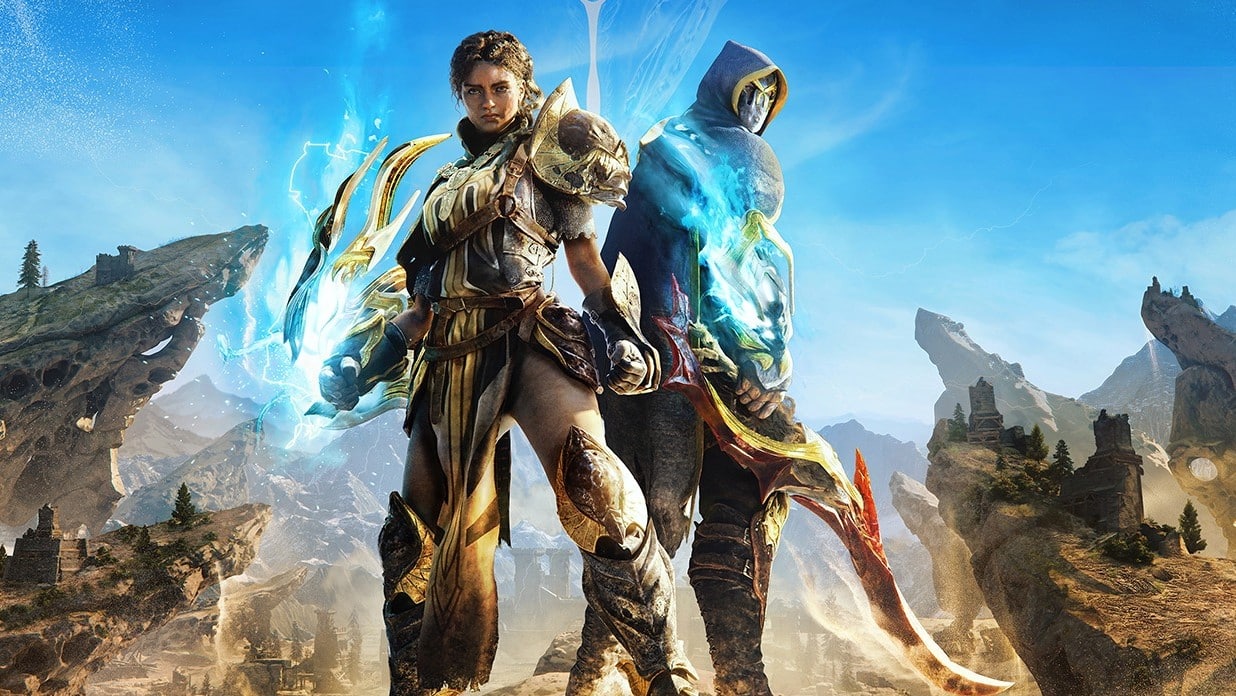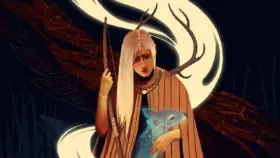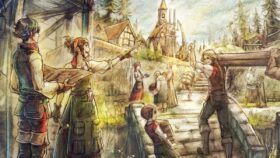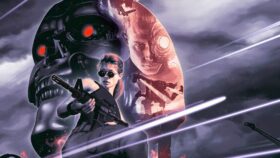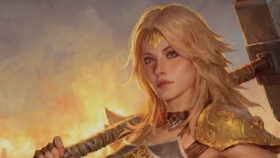How a game feels is everything, especially when it comes to action-orientated games. When done well, the flow of pushing a button, having your actions immediately translate to the screen, and getting meaningful aural, visual, and haptic feedback can provide a strong inherent sense of satisfaction that makes you want to keep doing it again and again. A good gamefeel can be enough motivation to push you forward through a long adventure, even when everything else doesn’t appeal to you. A lacklustre gamefeel on the other hand, can actively deter you from continuing, no matter how good the rest is. Atlas Fallen falls into the latter category.
Atlas Fallen is an open-world action RPG set in a vast, beautiful desert world, that your character traverses by ‘surfing’ on the surface of the sand to stylishly get from place to place. Its world and environment design is visually arresting, with its mythology offering an intriguing spin on Eurocentric fantasy tropes, with vengeful gods and weaponised magic. Its RPG structure of quests and rewards is unremarkable, but familiar enough to keep the wheel of progress turning – take on a quest, kill or collect a thing, take in the sights, and return.
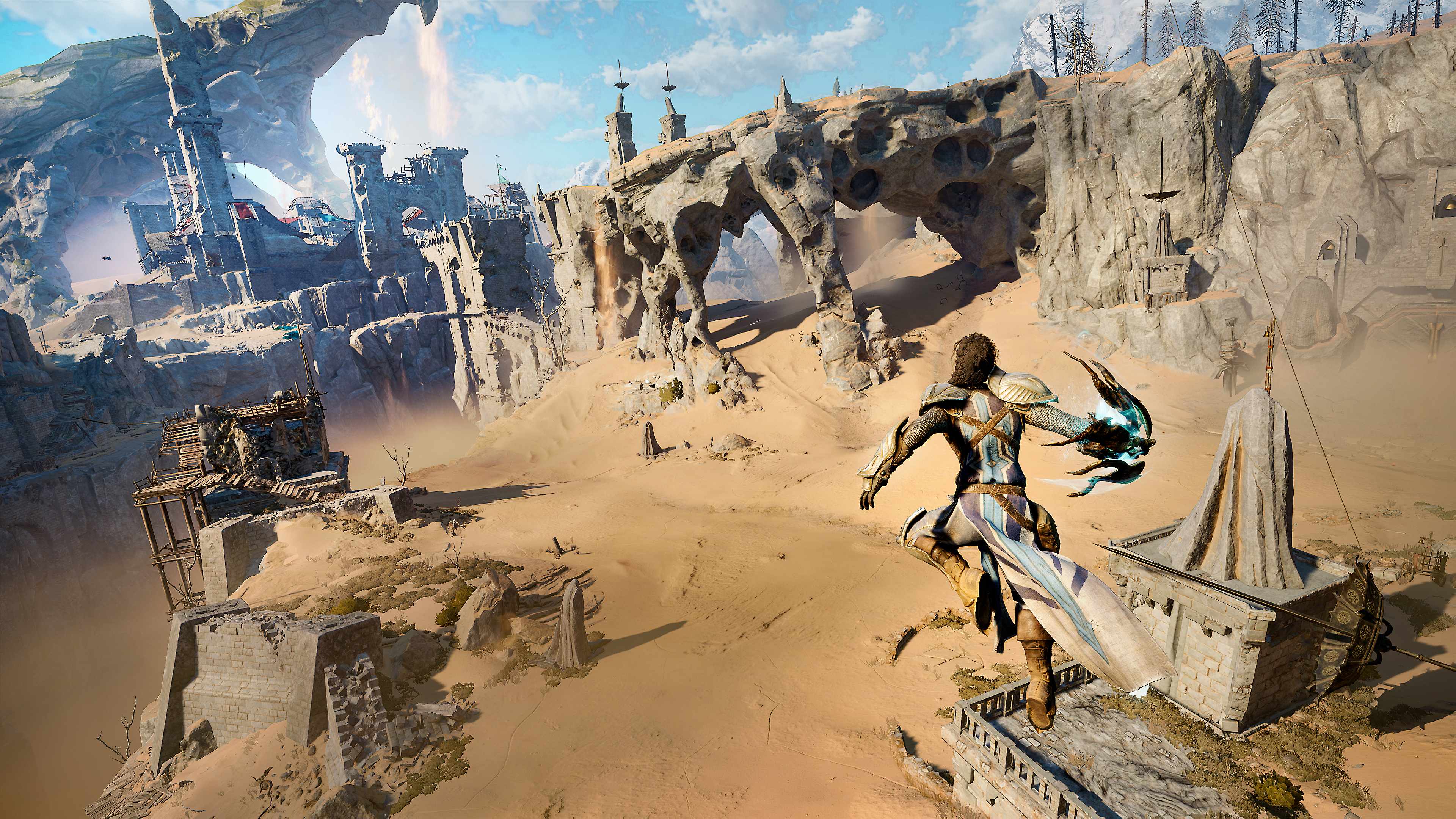
But in all the hours I spent killing all manner of creatures to complete those quests, I got very little gratification from the action of combat itself.
Atlas Fallen tries its hand at third-person, character-action combat in the style of complex, stylish games like the original God of War trilogy, Devil May Cry, and other genre contemporaries. Your protagonist, armed with a powerful, magical gauntlet, has the ability to temporarily fabricate weapons to use in melee attacks, and Atlas Fallen prides itself on the flexibility of your tools and a large number of abilities and customisation options to equip.
You’re able to use two different weapons at once, each assigned to a different button, and you can freely mix up attacks between them to create your own combos. There’s also a large emphasis on mid-air combat – you have an air dash that resets once you hit an enemy, theoretically allowing you to stay up there indefinitely. You might begin an attack string by using your whip to pull yourself into the air next to a flying enemy, unleashing a flurry of attacks on it, slam your hammer down into the ground to knock another enemy away, and then use a projectile ability to finish it off.
Atlas Fallen has the right ingredients – and several more interesting ideas beyond that. The primary one is the ‘Momentum’ mechanic, which allows you to dole out increasing amounts of damage and gain access to more powerful abilities as a battle wears on, but at the cost of being more vulnerable to damage yourself. You can also expel all your Momentum for high-powered area-of-effect attack, and reset the stakes.
But a litany of little issues prevents any of this from ever feeling very good. In what seems like an effort to give the weapons more heft, attack animations are long, and feel delayed as a result, dramatically diminishing the vital sensation of cause and effect. In catering for an aerial-focused combat flow, your character’s jumps and dashes feel too weightless, and the airtime too generous, removing the urgency or challenge to make the most of your time defying gravity.
The parry – what should feel like the most invigorating maneuver to pull off in a combat action game – feels strangely insignificant for such a high-risk move. Instead of a physical parry, the Atlas Fallen protagonist quickly summons a temporary armor of sand, and as enemies strike it, they freeze. Thematically, it may suit the magical powers of the gauntlet, but in practice, it means successfully executing a parry is wholly unfulfilling.
The unremarkable sound design also does combat a great disservice, with ineffective swooshes and weak thuds failing to sell the dramatic action you can clearly see. Gathering up Momentum and activating a devastating ability feels remarkably unsatisfying because of this, too.
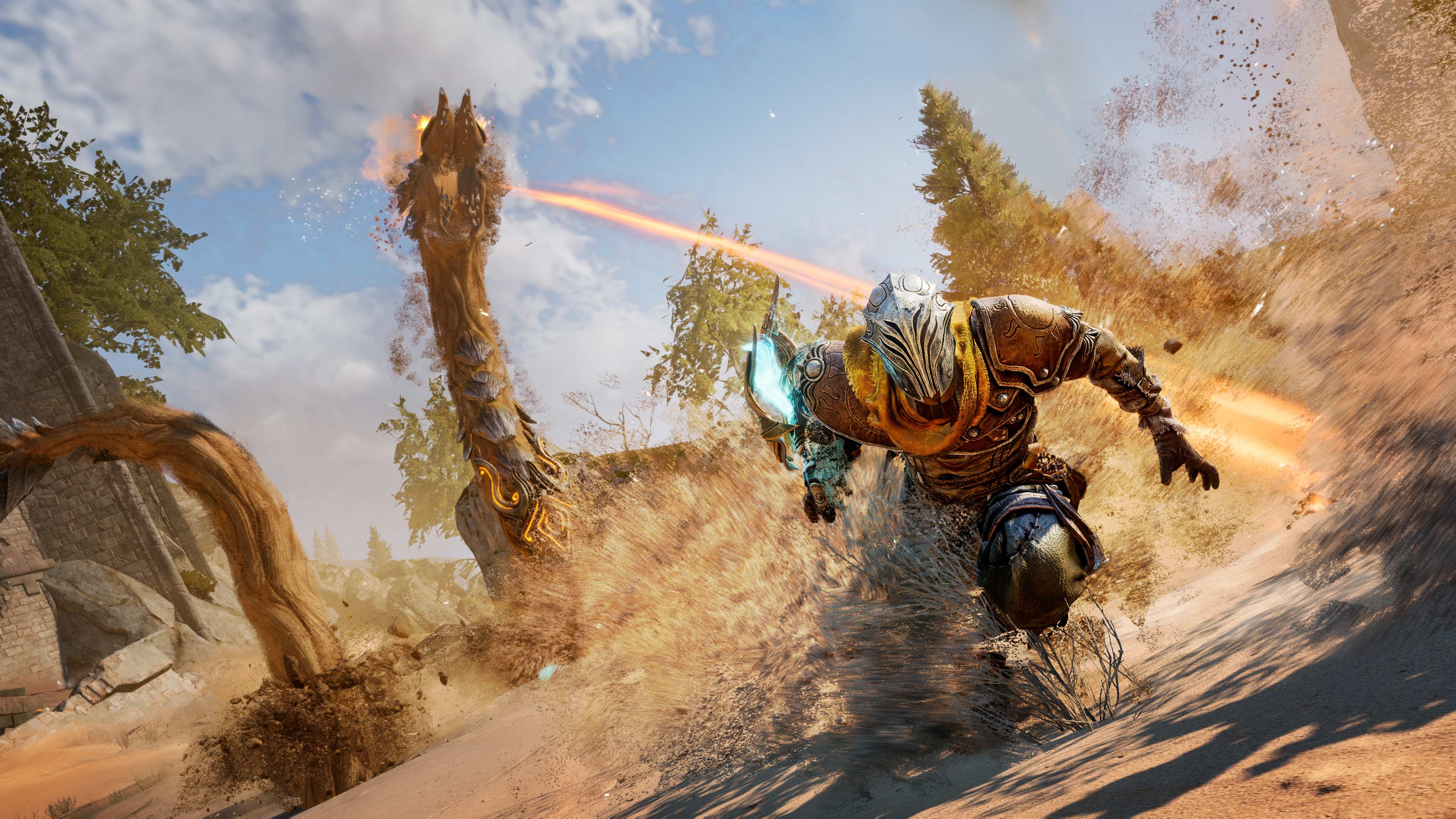
Perhaps there’s also something tricky about the idea of summoning magical weapons that may not have physical properties (a trait that Psychonauts 2 also shared in its telekinetic combat), but there is ultimately a real disconnect between you and your protagonist’s actions in Atlas Fallen. Even when there is a lot of chaos and excitement happening on screen, a lot of the time it feels like you’re not directly responsible for very much of it. You could argue that it’s somewhat akin to the combat system of an MMORPG – that is to say, more distanced, utilitarian and perhaps focused on the ability management aspect of it all – but it really doesn’t feel like that’s what Atlas Fallen had in mind.
The first time you’re given the chance to surf down a sand-covered mountain in Atlas Fallen, it’s invigorating. You immediately want to do it again, and you can. Anywhere there is sand, you can surf, and slide, and leap great distances while admiring the stunning horizon. A moment like that doesn’t exist for the game’s combat. And when lacklustre combat makes up the bulk of Atlas Fallen’s loop, it makes it that much harder to work up the motivation to continue exploring everything else the world has to offer.
Two Stars: ★★
Atlas Fallen
Platforms: PC, PS5, Xbox Series X/S
Developer: Deck13 Interactive
Publisher: Focus Entertainment
Release Date: 10 August 2023
The PS5 version of Atlas Fallen was provided and played for the purposes of this review. GamesHub has affiliate partnerships. These do not influence editorial content. GamesHub may earn a small percentage of commission for products purchased via affiliate links.
